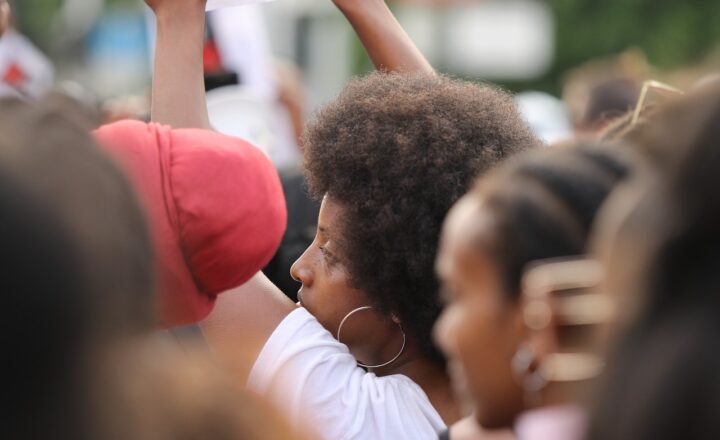The History of Voting Rights: How the Fight for Equality Shaped Democracies
November 16, 2024

The ability to vote is a fundamental right in modern democracies, shaping the very core of our political structures and social fabric. However, the history of voting rights is not a straightforward path toward universal suffrage. It is a complex narrative woven with struggles, activism, and significant societal shifts that reflect humanity’s ongoing quest for equality.
1. The Early Days of Voting Rights
Voting has been around since ancient times, with the first known records found in ancient Greece, where citizens participated in direct democracy. However, this voting system was limited to free men, excluding women, slaves, and non-citizens. The Roman Republic offered a different model, allowing patricians and plebeians to have a voice but still reinforcing socioeconomic disparities. Over centuries, the idea that every individual’s voice has value began to form, leading to the birth of more egalitarian voting systems.
In the Middle Ages, voting was largely influenced by monarchies and clerical authority. The Magna Carta of 1215 in England hinted at the changing tides, as it began the dialogue around individual rights and governance. However, true voting rights for broader populations remained elusive.
2. The Enlightenment and the Push for Democratic Principles
The Enlightenment era brought forth transformative ideas about government and rights. Thinkers such as John Locke and Jean-Jacques Rousseau emphasized individual freedoms and the social contract, arguing for a system of governance that involved the consent of the governed. This philosophical foundation was crucial in shaping modern democratic ideologies and a fervent push for voting rights.
In the 17th and 18th centuries, various revolutions sparked movements toward democratic representation. The American Revolution (1775-1783) and the French Revolution (1789) played pivotal roles in sending waves of reform throughout the world. The American Constitution initially granted voting rights primarily to white land-owning men, but the groundwork was laid for an evolving understanding of citizenship and representation.
3. The 19th Century: Expanding the Franchise
As society evolved, so did the electorate. The 19th century witnessed various reforms designed to expand voting rights. The Reform Acts in the UK slowly began to dismantle property qualifications that restricted suffrage to the wealthy. The 1832 Reform Act was significant, as it increased the number of eligible voters and addressed class disparities—albeit still excluding women and many working-class men.
In the United States, the suffrage movement began gaining momentum. The Seneca Falls Convention of 1848 marked a significant milestone for women’s rights, asserting the importance of female suffrage. Leaders like Elizabeth Cady Stanton and Susan B. Anthony emerged as formidable advocates, challenging not just the design of voting procedures but the very notion of women’s place in society.
4. The Fight for Women’s Suffrage
The struggle for women’s voting rights intensified throughout the late 19th and early 20th centuries, leading to both opposition and support. The suffragettes, known for their bold tactics—including marches, pamphleting, and hunger strikes—demanded equal voting rights. Countries worldwide saw similar movements gain traction.
In the United States, the tireless efforts of the suffragists culminated in the passage of the 19th Amendment in 1920, granting women the right to vote. This was a pivotal moment, not just for women but for the broader civil rights struggle, inspiring further movements toward equality.
5. The Civil Rights Movement and the Right to Vote
The fight for voting rights didn’t end with women’s suffrage. The Civil Rights Movement of the 1960s was critical in addressing racial discrimination in voting, particularly in the United States, where barriers such as literacy tests and poll taxes systematically disenfranchised Black voters. Key figures like Martin Luther King Jr. advocated for equality and the necessity of voting as a fundamental right.
This struggle led to the Voting Rights Act of 1965, which prohibited discriminatory voting practices and aimed to ensure that all citizens could exercise their right to vote regardless of race. This landmark legislation represented a significant victory but also revealed that the fight for voting rights was ongoing.
6. Global Perspectives and Modern Developments
The fight for universal suffrage extended beyond the United States and Western nations. Countries around the globe, from India to South Africa, grappled with issues of voter disenfranchisement and the right to participate in democracy. The global struggle frequently intersected with broader social justice movements, highlighting the interconnectedness of rights and democracy.
In recent years, however, the landscape of voting rights has continued to evolve. New challenges have emerged, including voter ID laws, gerrymandering, and technological barriers that threaten equitable access to the ballot box. Furthermore, debates surrounding the rights of marginalized groups, including the LGBTQ+ community and non-citizen residents, continue to shape the discussion on inclusivity in voting.
7. Conclusion: The Ongoing Quest for Equality
The history of voting rights is a testament to humanity’s enduring struggle for equality and justice. From ancient civilizations to modern democracies, the path to voting rights has been fraught with challenges, activism, and victories. Today, as we reflect on this history, we must remain vigilant to protect and expand voting rights for all individuals, recognizing that the fight for democracy is ongoing and requires collective engagement.
As we approach future elections, the significance of voting and the right to participate cannot be overstated. Voting is not merely a procedural act; it is the essence of democracy itself and a fundamental expression of our collective values as a society. It is crucial that we honor the sacrifices made throughout history by ensuring everyone has a voice, fostering a future of democratic inclusivity.






